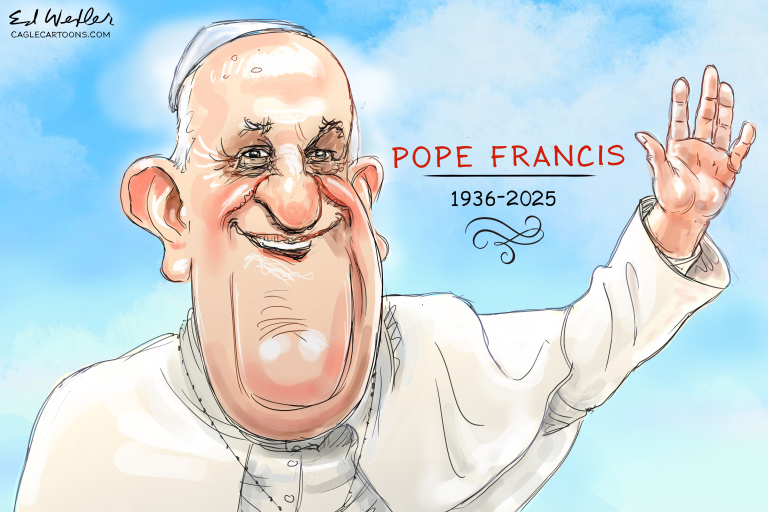
Tracy McEwan, University of Newcastle and Kathleen McPhillips, University of Newcastle
Pope Francis, the head of the Catholic Church, died on Easter Monday at the age of 88.
On Easter Sunday, he used his message and blessing to appeal for peace in Middle East and Ukraine.
Pope Francis will be remembered as a pastoral leader who cared deeply about the environment and those impacted by migration, poverty and war.
During his Pontificate, he did make important changes to the patriarchal structure of the Catholic Church – but did he go far enough?
A pope for all?
Throughout his papacy, Pope Francis highlighted the struggles of women in society. He took important steps to expand opportunities for women in the church and address its patriarchal structure.
This was showcased by his inclusion of women in the 2024 synod (a global meeting of the whole church, represented by bishops) and his granting of voting rights for 57 women out of a total of 368 attendees.
His appointment of around 20 women to positions of authority in the Vatican is unprecedented.
This includes the recent 2025 appointment of an Italian religious sister, Simona Brambilla, to lead a Vatican department.
During his papacy, Pope Francis also strongly supported the ongoing involvement of women in positions of leadership in the Roman Curia (the governance body of the church).
At local levels, in parishes, he made it possible for women to be formally appointed to the positions of catechist and lector – roles previously reserved for men.
He also emphasised a need for more women to study and teach theology.
An ‘urgent challenge’
However, these changes barely scratched the surface of securing full equality for women in the Catholic Church.
Pope Francis himself stated women still encountered obstacles, and opportunities for women to participate were under-utilised by local churches.
In his autobiography, published in January this year, he wrote of the “urgent challenge” to include women in central roles at every level of church life.
He viewed this move as essential to “de-masculinising” the church and removing the problem of clericalism.
Importantly, the reasoning that underpins women’s limited role in the life of the church remains unchanged.
In particular, Pope Francis referred to gender stereotypes and supported the theology of complementarianism (a view that women are different but equally valued, where their central contribution is to motherhood, femininity and pastoral care responsibilities).
While Pope Francis was genuinely committed to dialogue about and with women, his legacy remains contradictory.
Equality is still lacking
Women have been appointed to administrative and management positions, but decision making and ministry still largely rest with clerical men.
Pope Francis’ emphasis on the “feminine nature” women bring to roles, rather than their gifts and talents, limited women.
And although he called out discrimination against women in broader society, he expressed opposition to contemporary feminism, which he titled “gender ideology” and “machismo with a skirt”.
Moreover, despite ongoing discussions, Pope Francis appeared to be unresponsive to calls for a greater role for women in ministry.
Women cannot preach during Mass or be ordained to the priesthood or deaconate, despite multiple attempts by Catholic reform groups to advocate for women’s inclusion.
The 2023 International Survey of Catholic Women, which surveyed more than 17,000 Catholic women from 104 countries and eight language groups, found women across the world were keen for church reform that recognises women’s leadership capacities and ongoing contribution to church communities.
More than eight in ten (84%) of the women surveyed supported reform in the church. Two-thirds (68%) agreed women should be ordained to the priesthood, and three-quarters (78%) were supportive of women preaching during Mass.
The survey reported on the deep frustration and despair women experienced for not having their gifts and talents recognised.
Women also stated they are dissatisfied with the burden of labour they carry in the church.
In this regard, Pope Francis did not address the financial burdens and exploitation of Catholic women who work for the church without adequate recognition or pay. This leaves women, particularly those working in parishes, open to exploitation.
More worryingly, decades after cases of abuse were reported to the Vatican, Pope Francis publicly acknowledged that women, particularly nuns, were significantly affected by spiritual and sexual abuse.
While this recognition is important, church responses to abuse remain inadequate and more needs to be done to safeguard women in pastoral settings.
With regard to sexual and reproductive decision-making, the International Survey of Catholic Women found the majority of respondents wanted more freedom of conscience around such issues. This is because when they are denied by church law, women’s agency was diminished and their vulnerability to situations of gendered violence increased.
The papacy of Pope Francis has made no reforms in this area, leaving many Catholic women frustrated and disappointed.
Hope for the future?
More than 60 years ago, Vatican II generated hope for change among Catholic women.
Pope Francis reignited that hope, and listened. But responses have been too slow and Catholic women are still waiting for genuine reform.![]()
Tracy McEwan, School of Humanities, Creative Industries and Social Sciences, University of Newcastle and Kathleen McPhillips, Senior Lecturer, School of Humanities and Social Science, University of Newcastle
This article is republished from The Conversation under a Creative Commons license. Read the original article.
















